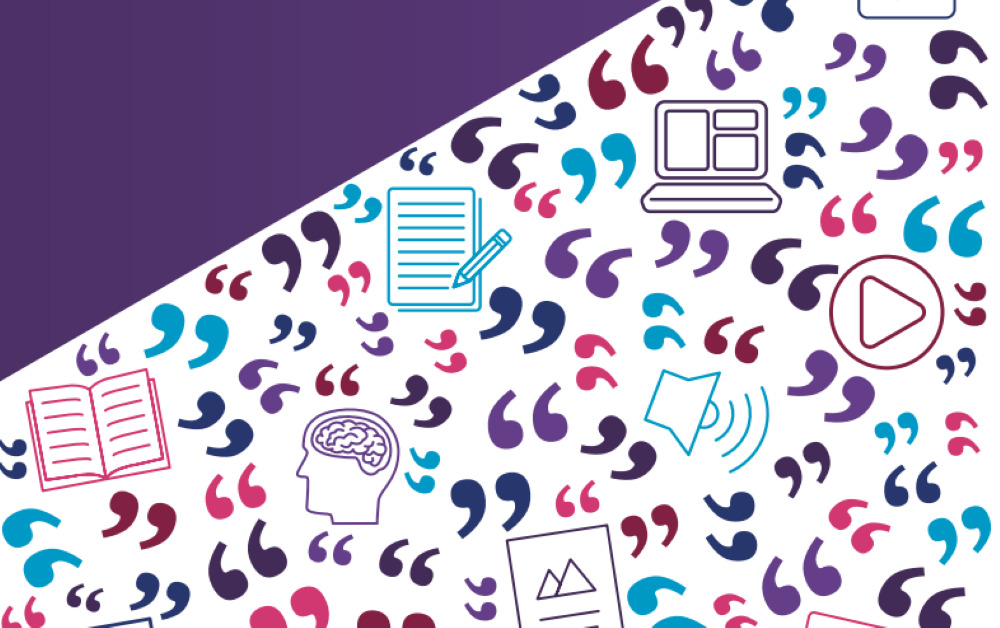Introducing our NLM Numbered referencing style
11/10/2023

The NLM Numbered Referencing Guide was introduced for new students using a numbered style in August 2023. It uses the National Library of Medicine (NLM) style guide, which is sometimes also referred to as Vancouver referencing.
We support two different referencing styles at Cranfield – the Author-Date style (APA7) and the Numbered style (NLM). Please check with your supervisor or lecturer before you start collating your references for your first assignment, as they may have a preference for which system you use. NLM is particularly favoured by some courses in the School of Aerospace, Transport and Manufacturing, and Cranfield Defence and Security.
What is a numbered style of referencing?
Using a numbered style essentially means providing a number in your written work to indicate where you used the work of another person or organisation (an in-text citation). The bibliographic details of each in-text citation such as the author, title, publisher details and publication date are then provided in a reference list at the end of your assignment so the reader of your work can trace each citation.
How do I do this?
In-text citations can be formatted using either round brackets (1) or square brackets [1]. Whichever format you choose to use, be consistent and use the same format throughout (you may find if you are using reference management software, such as Mendeley, the format is decided for you).
The bibliographic details of each in-text citation (known as a reference) are listed in a reference list using the corresponding number allocated to them in the order they appear in your writing.
Why use the NLM style?
The NLM style dictates which bibliographic details (sometimes referred to as elements) need to be included in each reference for different sources of information. It also determines the order of each element (e.g. author always comes first) and any punctuation or formatting required. Providing each element in a certain order, format, and using punctuation makes it easier for readers to trace and locate each source.
Where can I find out more?
Taught students who are required to use the NLM numbered referencing style for their course should be enrolled on the Referencing and Avoiding Plagiarism – Numbered NLM course which is available through your Canvas dashboard.
We also provide a range of guidance on the NLM Numbered style when you need it:
- Our Referencing and Plagiarism page
- Our Study Skills Hub
- Citing medicine: the NLM style guide for authors, editors, and publishers
- Your Librarian
The NLM style is supported by Mendeley. To add the style, go to Citation Settings in the Mendeley Cite add-in and select “National Library of Medicine” from the listed citation styles.
If you have any questions about referencing and the NLM numbered style, please contact us and we will be happy to help you.
Categories & Tags:
Leave a comment on this post:
You might also like…
From classroom to cockpit: What’s next after Cranfield
The Air Transport Management MSc isn’t just about learning theory — it’s about preparing for a career in the aviation industry. Adit shares his dream job, insights from classmates, and advice for prospective students. ...
Setting up a shared group folder in a reference manager
Many of our students are now busy working on their group projects. One easy way to share references amongst a group is to set up group folders in a reference manager like Mendeley or Zotero. ...
Company codes – CUSIP, SEDOL, ISIN…. What do they mean and how can you use them in our Library resources?
As you use our many finance resources, you will probably notice unique company identifiers which may be codes or symbols. It is worth spending some time getting to know what these are and which resources ...
Supporting careers in defence through specialist education
As a materials engineer by background, I have always been drawn to fields where technical expertise directly shapes real‑world outcomes. Few sectors exemplify this better than defence. Engineering careers in defence sit at the ...
What being a woman in STEM means to me
STEM is both a way of thinking and a practical toolkit. It sharpens reasoning and equips us to turn ideas into solutions with measurable impact. For me, STEM has never been only about acquiring ...
A woman’s experience in environmental science within defence
When I stepped into the gates of the Defence Academy it was the 30th September 2019. I did not know at the time that this would be the beginning of a long journey as ...






